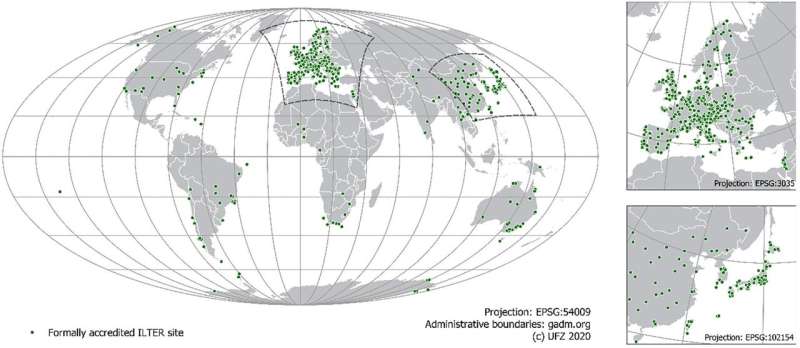New calculation models for a more evidence-based debate about sustainability

Clear indicators and evaluation criteria are essential to save the environment. Two Sweden-based researchers hence introduce a new indicator, eco-balance, and a new criterion that takes into account both human and environmental sustainability. The conclusion is that many countries need to reconsider their consumption as well as their population in order to be sustainable.
When we discuss the environmental issues that are becoming more and more noticeable, the debate easily turns black and white. Overconsumption versus overpopulation; developed versus developing countries; North versus South. However, the reality is as gray in different shades as the smoke that rises from forests that are on fire and the water that floods fields and cities.
Giangiacomo Bravo, professor of sociology at Linnaeus University in Sweden, and Lucia Tamburino, researcher at IGDORE, therefore present a new criterion for sustainability in the journal Ecological Indicators. This more comprehensive criterion takes into account both the human and the environmental dimensions.
"The criterion consists of two parts: ecological and human sustainability. Ecological sustainability is estimated using a new indicator, the eco-balance, which is based on the proven concept of ecological footprint. Human sustainability is based on the estimated level of biological capacity that each person needs to consume to achieve an acceptable level of human development," says Giangiacomo Bravo.
Both expected and surprising results
The researchers' calculations show that the world as a whole does not meet the new criterion. To a large extent, the results were expected—only 24 countries meet both requirements. One of these is Sweden, even if its eco-balance has declined over the years because of the country's population increase.
Even a small individual footprint can have significant consequences in a populous country. An important question is therefore whether changes in consumption patterns and technological improvements can reduce the environmental impact without reducing human well-being and development too much, or whether the population factor must also be taken into account. The latter is the conclusion drawn in the article.
"We were suprised that not only densely populated, poorer countries but also several highly developed countries should reduce their population, along with their consumption, to reach sustainability," says Giangiacomo Bravo.
Another surprising result is that if you follow the paths towards sustainability identified in the paper, it would lead to a much more equitable world, the researchers say. Equality would emerge as a result, not a driver, of sustainability.
A contribution to a more evidence-based debate
"Our article's main message is that there are no independent, sustainable levels of technology or individual consumption, but only sustainable combinations of technology, consumption, population and available biocapacity."
"Our goal has been to contribute to a more evidence-based debate on sustainability and how to reach it. The new indicators can help policy-makers get a more comprehensive picture of current challenges and realistic solutions," Giangiacomo Bravo concludes.
More information: Lucia Tamburino et al, Reconciling a positive ecological balance with human development: A quantitative assessment, Ecological Indicators (2021). DOI: 10.1016/j.ecolind.2021.107973
Provided by Linnaeus University



















